When it comes to health and fitness, nutrition and calories are often discussed in conjunction with any exercise or weight-related goals. Rightfully so, as caloric and energy intake can have a huge impact not only on our weight but our overall health and energy levels. Whilst this can be a confusing area for many, and talk of calories may be avoided through fear of shaming or obsessing, this blog aims to give you some facts and ideas that may help with any weight or energy related goals.
What are calories and why do we need them?
Without getting too scientific, a kilocalorie (kcal/calorie) is a unit that is widely used to measure energy intake and output. We often measure the amount of energy contained in food or drink in this way, aswell as the amount of energy used during a workout or other activity.
Calories are needed to keep us alive and to keep our bodies functioning normally. The number of calories needed depends on may factors including activity levels, age, weight and individual goals. If an individual consumes more calories than they use, over time they will gain weight. If they use more than they consume, weight loss will result. You may also hear this widely referred to as a ‘calorie deficit’. Whilst there are many different diets around, weight management comes down to this simple equation, ‘energy in vs energy out’.
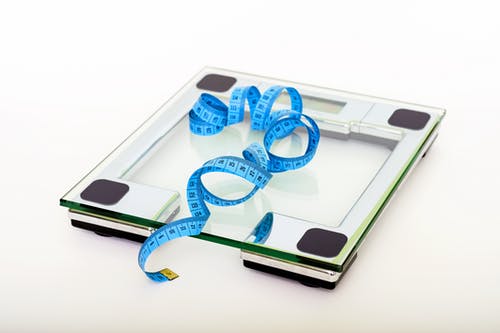
Where do we get calories from and can we overconsume them easily?
It’s important to remember that we consume calories not just through food but also any drinks that contain energy, including alcohol. Different food groups contain different numbers of calories per gram, with the 3 macronutrients measuring up as follows:
Carbohydrates and proteins – 4 calories per gram
Fat – 9 calories per gram
Alcohol (not a nutrient) – 7 calories per gram. It’s important that we include alcohol here as despite having no nutritional value, it still contains calories. As you can see here, it contains more calories per gram than 2 of the main macronutrients. Whilst it isn’t necessary to cut out anything from your diet to lose weight (alcohol included), it’s important not to overlook the number of calories in our drinks.
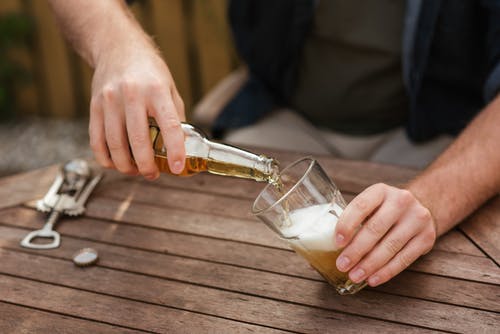
Whilst weight gain or loss can be explained by the simple ‘Energy in vs Energy out’ equation, it’s important to note that a surplus of calories can have other effects such as increased risk of certain illnesses, whilst too few calories may result in low energy levels and deficiency of some vitamins and minerals. This blog doesn’t cover specific dietary needs and if you have any questions about these you should seek advice from a qualified professional. If the ‘energy in vs energy out’ equation is balanced, weight will remain stable.
Many people are interested to know that 1lb of body fat is equivalent to around 3500 calories. This means that to gain 1lb of body fat we must consume 3500 calories more than we burn off. If somebody gained 1lb of fat in a week, that would mean they consumed an average of around 500 surplus calories per day. For someone wanting to lose 1lb of body fat per week, they would have to be in a deficit of 3500 calories over the week, or around 500 calories per day. Whilst this may sound like a lot, it’s important to remember that a deficit is quite often more easily achieved through a combination of consuming fewer calories and expending and moving more as opposed to trying to achieve the entire deficit through exercise or diet alone. This number is just a guideline and exact calorie requirements and weight loss does vary between individuals
How does our body burn calories?
When we talk about energy output, many of us automatically think of exercise. Exercise does of course burn calories, with cardiovascular pursuits such as running, skipping and swimming burning more than resistance training and lifting weights in a given amount of time. If somebody was exercising purely to burn calories, then they may aim to do a lot of cardio.
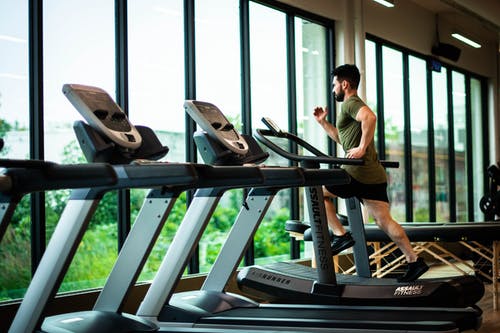
Whilst this may seem to make sense, there is a strong argument for resistance training being of high importance in any weight loss programme due to metabolic effects (see below). Many people also wrongly believe that if they don’t have time to go to the gym, go for walks or complete home workouts and so on then they can’t lose weight. Whilst structured exercise sessions are useful for weight loss and many other health benefits, the body burns calories in other ways too.
Basal Metabolic Rate (BMR) is the amount of calories the body burns at rest to carry out basic functions such as breathing. Calculating someone’s BMR uses factors including height, weight and gender. You may also hear BMR being referred to more casually as ‘metabolism’, and it’s often widely noted that some people seem to be able to eat more than others without gaining weight. BMR is part of the reason why!
As well as through planned exercise and for bodily functions, we also burn calories through None Exercise Activity Thermogenesis (NEAT), which is essentially all the movement we do on a day-to-day basis that isn’t exercise. This includes fidgeting, washing up and moving from room to room. For someone who has an active lifestyle in this way, they quite often burn more calories going about their daily lives than they would in a specific exercise session and therefore it can have a massive effect on weight related goals.
How do I know how many calories I need?
As a guide, an average man needs around 2500 calories a day to maintain a healthy body weight. For an average woman, that figure is around 2000 calories.
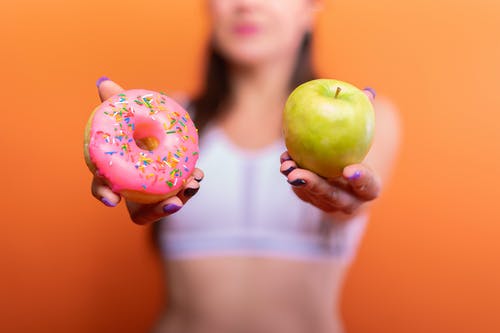
You can work out a more personal BMR using your gender, weight, height and age which you can then multiply by different numbers depending on your levels of activity. You can then calculate calories needed on a daily basis to maintain your weight and adjust accordingly for weight loss or weight gain goals. If you search BMR calculator or BMR equation online you should find several websites offering this function. This is a really handy thing to do if you’ve never looked into it before and takes very little time. It also demonstrates clearly how individual factors mean that 2 people with exactly the same diet and exercise programme could experience weight gain or loss in different ways. There really is no ‘one size fits all’ diet or exercise programme to gain or lose weight and it’s important to arm yourself with personalised knowledge and to find something that is sustainable and effective for you.
How can we burn more calories and can we really boost our metabolism?
As I have emphasised above, we are all unique and a personalised approach really is key but if you’re looking to increase calorie burn or lose weight then the following tips may help.
Make time to exercise – Seems obvious, right?! But if you’ve tried every diet under the sun and nothing seems to work, think about adding in exercise to increase calorie burn. Increase exercise intensity if possible, for example if you already walk regularly, try incorporating brisk walking to get the heart rate up a little and so you feel warmer and your breathing rate increases.
Don’t forget weights! – Building muscle through resistance training can be extremely helpful for fat loss and weight loss goals. Not only does resistance work burn calories during the session (albeit usually not as many as cardio), muscle is more metabolically active at rest than fat. Essentially, if you can gain muscle then the amount of calories you’re consuming can increase without your weight increasing and your body will burn more calories in a resting state such as sat watching a film. This is why body builders can often eat an unusually large number of calories without gaining weight or changing their body composition.
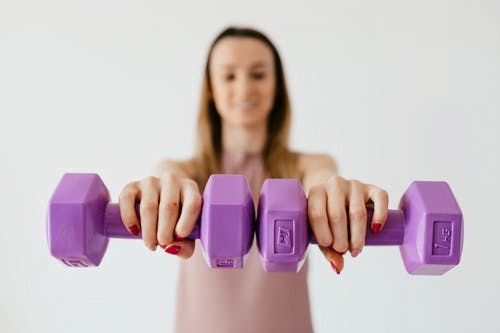
Fidget! – Remember the importance of NEAT! We can burn a high number of calories through everyday activities without setting time aside for specific ‘exercise’. The more we move the more we can burn! Try increasing physical activity by moving around whilst on the phone or marching on the spot during a zoom call (camera off!). Use the stairs instead of the lift whilst out and about or walk up escalators, get off public transport a stop early or park your car further away from where you’re going than you normally would. Walk down all the aisles in a supermarket, fetch shopping from the car one bag at a time and put your washing up away one item at a time to increase the amount of activity you get from these everyday tasks. Try putting more energy into these tasks too such as trying to do them more quickly if it’s safe to do so or squat down to pick things up off the floor or rise onto your tiptoes each time you reach overhead to work your calf muscles more. Done regularly and consistently, these changes can make a big difference to calorie burn.
Stay hydrated – Water is involved with almost every biological function in the body and so in a dehydrated state our metabolism slows down. When we’re dehydrated, we may mistake thirst for hunger and so may be more likely to over-consume calories and energy levels will also be low without adequate water intake and so we will be less likely to move around and so calorie burn will be further reduced.
Sleep it off – Lack of sleep is linked to increased risk of obesity and weight gain. This could be related to negative effects of sleep deprivation on metabolism as well as changes to hormones that govern hunger and fullness in our body. When we are tired, we may also be less likely to make informed and responsible decisions when it comes to food choices and crave high-calorie foods to boost our energy. Adequate sleep is of high importance for all-round good health and weight management.
As always, I hope you’ve found this blog informative. Ultimately it’s important to separate facts from fads when it comes to weight management, calories and metabolism. It’s also important to consider individual factors relating to weight loss and remember that there is no ‘one size fits all’ approach. The suggestions in this blog can help with weight management in a natural and sustainable way. If you have any questions or would like any more information on anything covered in this blog, please get in touch with Mike at Hamers360fitness or Bev via Instagram below. Thanks for reading 🙂
Bev Meakin – Personal Trainer/ Exercise Referral Officer and Complementary Therapist. Instagram @bevs_life

